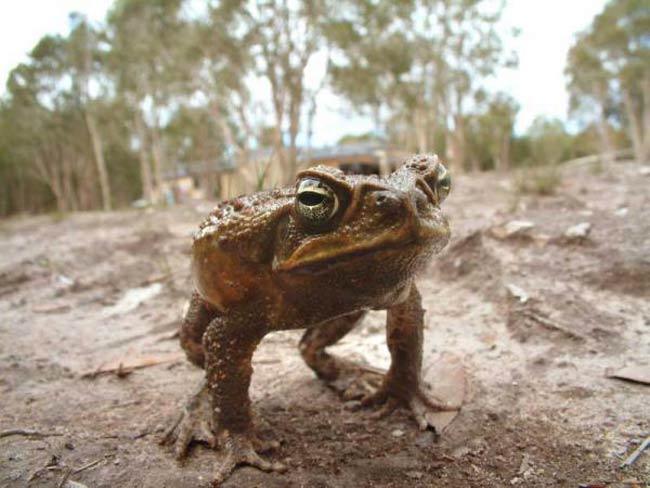
Invasive Cane Toads to Thrive In Warmer World

Get the world’s most fascinating discoveries delivered straight to your inbox.
You are now subscribed
Your newsletter sign-up was successful
Want to add more newsletters?

Delivered Daily
Daily Newsletter
Sign up for the latest discoveries, groundbreaking research and fascinating breakthroughs that impact you and the wider world direct to your inbox.

Once a week
Life's Little Mysteries
Feed your curiosity with an exclusive mystery every week, solved with science and delivered direct to your inbox before it's seen anywhere else.

Once a week
How It Works
Sign up to our free science & technology newsletter for your weekly fix of fascinating articles, quick quizzes, amazing images, and more

Delivered daily
Space.com Newsletter
Breaking space news, the latest updates on rocket launches, skywatching events and more!

Once a month
Watch This Space
Sign up to our monthly entertainment newsletter to keep up with all our coverage of the latest sci-fi and space movies, tv shows, games and books.

Once a week
Night Sky This Week
Discover this week's must-see night sky events, moon phases, and stunning astrophotos. Sign up for our skywatching newsletter and explore the universe with us!
Join the club
Get full access to premium articles, exclusive features and a growing list of member rewards.
As the planet gets warmer, cane toads — an invasive species that has taken over Australia — will get happier, a new study suggests.
The cane toad might be just one of the lucky species expected to flourish as temperatures increase, a situation expected to spell doom for many plants and animals.
In 1935, 102 Cane toads were brought to Australia to wipe out a species of beetle that was devouring sugar cane crops. The toads ignored the beetles; instead they conquered Australia and today number more than 1.5 billion.
"The negative effect of high temperature does not operate in cane toads, meaning that toads will do very well with human-induced global warming," said biophysicist Frank Seebacher of the University of Sydney in Australia. Seebacher is a co-author of the study that will be presented at the Society for Experimental Biology Annual Conference in Prague on July 2.
Unlike fish and other cold-blooded creatures that have trouble breathing at high temperatures, the cardiovascular system (heart and lungs) of cane toads actually runs better in the heat.
Other species expected to enjoy hotter temperatures include:
- Crabgrass and other weeds — global warming may help them take over your lawn.
- Cyanobacteria — the algae that's choking out your favorite fishing spot love the sun.
- Sharks — these ocean predators can maintain their high metabolism easier in warmer waters.
- Starfish — they grow faster in water that's hot and full of carbon dioxide.
Cane toads' hearts and lungs were studied at temperatures between 68 and 86 degrees Fahrenheit (20 to 30 degrees Celsius). As the temperature increased, cane toads adjusted perfectly. Their resting oxygen demands — a measure of how hard the cardiovascular system is working — did not change.
Get the world’s most fascinating discoveries delivered straight to your inbox.
Not only can the toads survive over a broad temperature range, but they prefer higher temperatures. In the study, as the temperature increased, the toads moved oxygen around in their bodies more easily.
"Warmer temperatures are advantageous and there is no indication that high temperatures limit oxygen delivery," Seebacher said. "The impact of global warming doesn't have to be negative. Global average temperatures at present may in fact be cooler than many animals would like."
- 7 Terrific Toad Survival Tactics
- Alien Invaders: Destructive Invasive Species
- Top 10 Surprising Results of Global Warming
This article was provided by OurAmazingPlanet, a sister site to LiveScience.
 Live Science Plus
Live Science Plus











